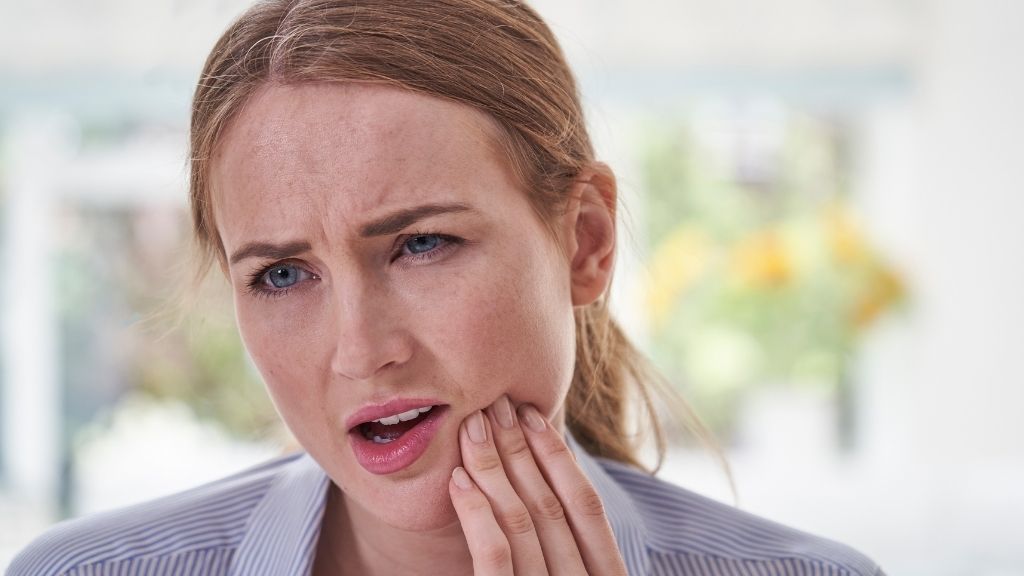
Quite often, people who come into my West Kelowna dentist office experiencing a lot of pain end up needing root canal treatment. They have a cracked or broken tooth or deep decay that has damaged the nerve of the tooth.
To provide the patient with relief, we have to remove the nerve tissue. This procedure can take an hour or more to complete.
While the patient will likely experience relief from tooth pain after treatment, they may find that they have another type of pain: Jaw pain.
We get the following questions asked frequently; What causes jaw pain after root canal treatment? Why can you have jaw pain weeks after root canal treatment? What causes severe jaw pain after root canal treatment? Why do I have jaw and ear pain after root canal treatment? or "My jaw hurts after root canal treatment".
And what will relieve the pain?
There’s more than one cause of jaw pain after root canal treatment (RCT).
It’s important to remember that there are a lot of factors at play in this type of situation.
For example, a person can have a serious infection – complete with inflammation and swelling – when they’re told they need root canal treatment.
Just because they have the treatment doesn’t mean all of their symptoms are going to automatically disappear.
It’s going to take some time for the swelling and tenderness to go down.
When bottom teeth need dental treatment – including RCT – we have to give the patient an injection called a mandibular block. To adequately numb the tooth, we have to inject the mandibular nerve, which is close to the jaw joint. Tenderness from the injection is common.
The material used to fill the root (once the nerve has been removed) could extend beyond the root tip. If this happens, it can lead to inflammation and pain.
The main cause of pain might’ve been the issue that resulted in an RCT. But there might be other issues at hand as well, like periodontal disease. Gum disease can cause painful inflammation and infection.
Holding your mouth open for such a long period of time can not only cause muscle tension and tenderness – it can cause temporomandibular joint disorder (TMJ) or TMD. Sometimes, one or both jaw discs can slip after an RCT. This can lead to short- and long-term jaw pain.
There are some things you can do to reduce the discomfort you feel after having the jaw open widely for a long period of time. Try the following and see if your jaw pain starts to ease up.
Any pain post-treatment should be evaluated by a your West Kelowna Dentist
If the jaw pain after root canal treatment is excruciating, you don’t find any relief, or it lasts longer than a few days – contact our dentist office or your dentist.
We want to re-evaluate you for infection and see if the root sustained any damage during the procedure.
Additionally, we want to check for TMD.
Patients who experience jaw pain can find relief through the a custom-made dental orthotic, also called a TMJ dental appliance. The discrete, non-invasive appliance which you can eat, drink, and sleep with can protect your jaw from general strain, as well as that from clenching and grinding. If your TMJ’s are out of alignment because of the jaw pain treatment, this dental appliance can help reposition your jaws to a more optimal position.
Pain after a root canal is not something you have to endure in silence. Call our West Kelowna dentist office if you have any pain post-RCT.
Typically, we go through life blissfully unaware of the goings-on of our body. That is, of course, until something goes wrong.
That’s when our body raises its alarm systems, which usually means we experience some sort of pain. Pain is a form of communication. It’s like our body yelling at us that something is out of whack and needs attention.
It’s no different with our oral health. We should be aware of our teeth or the soft tissues of our mouth. When we do notice sensitivity, discomfort, or pain, it’s usually an indicator of a problem.
If you experience any sort of dental pain, I highly recommend you come into my West Kelowna dentist office. We can look at your symptoms and find the cause of the problem. And whether it’s a minor issue or a more serious one – we can find a treatment that can reduce or eliminate your symptoms.
Have you been experiencing dental pain? If so, please contact my office ASAP. My team and I will evaluate your dental health and work hard to help you find quick relief.
